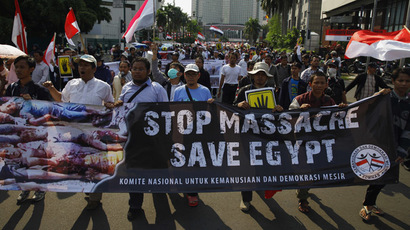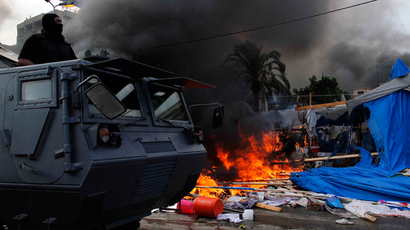Egypt draft constitution may ban religious political parties – report
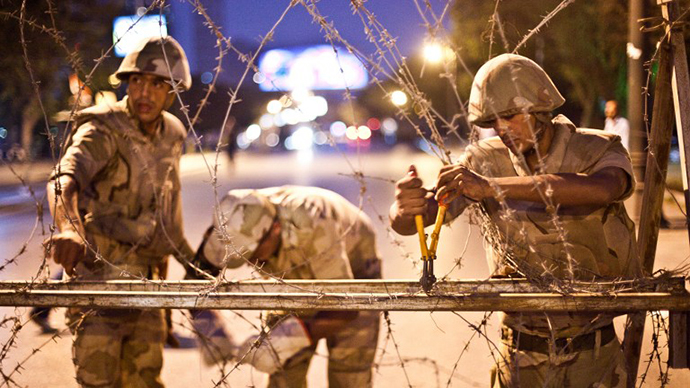
Egypt’s new constitution may ban all religious political parties, sources told Ahram Online, as the army-backed interim government hints that it may declare the Muslim Brotherhood a terrorist organization after clashes that have left over 800 dead.
The new draft constitution is expected to be announced Wednesday,
Ali Awad Saleh, head of the committee drawing it up and a
constitutional aide to the interim president, said in a Sunday
press conference.
Following the ousting last month of former President Mohamed
Morsi, interim President Adly Mansour created a 10-member
committee tasked with proposing amendments to the constitution.
The panel consists of six judges and four constitutional law
professors.
A second committee, comprised of 50 public figures, will then
have 60 days to review those amendments before the proposals are
put to a national referendum. Parliamentary elections are
expected to follow after the referendum.
“Fundamental changes must be introduced to [the] 2012 Islamist-backed constitution,” Ahram Online quoted a source close to the committee as saying. According to the source, the committee has agreed that the new constitution will ban political parties based on religious ideology.
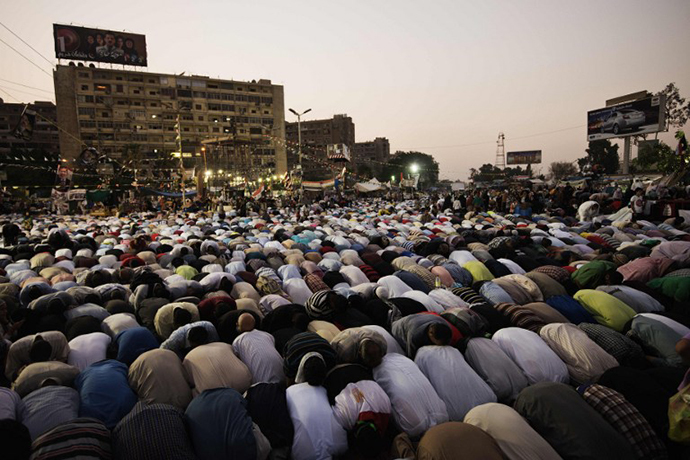
Such a change would reverse Article 2 of Morsi’s controversial
2012 constitution, which stipulates that Islamic Sharia law
supersedes civil law. Last week, however, Awad was quoted as
saying that Article 2 would be kept “in order to stress the
Islamic identity of Egypt.”
The source said the ban on religious parties in Egypt was
necessary, as a number of political parties have a
religious-based ideology, with the ultimate goal of creating an
Islamic religious state. Concerns about religious extremism were
highlighted by “proposals from more than 400 political,
economic, and social institutions, pressing hard for the
necessity of safeguarding Egypt against Islamist factions trying
to change the civil nature of the country into a religious
oligarchy,” the source said.
Among other major proposed amendments, the ban against Hosni
Mubark’s National Democratic Party would be lifted, the source
said.
Committee sources also stated that the “the upper house of
parliament, the Shura Council, would be scrapped.”
“Most political factions are also pressing for the elimination
of this council, which was exploited by the Muslim Brotherhood
and its allies for more than a year to impose their Islamist
ideology on the country,” a source said. He added that the
Shura Council costs the state budget “too much money at a time
of severe economic crisis.”
Some legal changes governing the High Constitutional Court and
the media are also expected, to reinforce institutions’
independence and shield them from further “intimidation by
ruling regimes,” the source said.
Earlier, interim Prime Minister Hazem el-Beblawi proposed
dissolving the Muslim Brotherhood as the army clashed with
pro-Morsi supporters across the country.
“There will be no reconciliation with those whose hands have been stained with blood, and who turned weapons against the state and its institutions,” Beblawi told reporters.
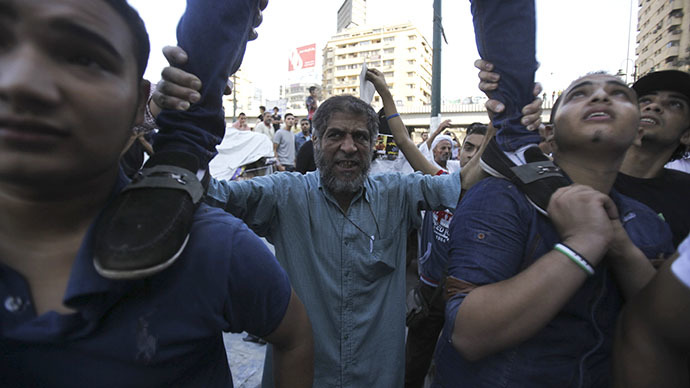
The Muslim Brotherhood has also been blamed for dozens of attacks
on Coptic churches and Christian communities in Egypt. But the
group has denied these claims, with Amr Darrag from the
Brotherhood’s Freedom and Justice Party telling RT that “the
Muslim Brotherhood has always been protecting churches.”
Citing a priest in Minya - where several Christian churches were attacked this week - Darrag said that the “attacks were orchestrated by thugs who cooperate with security forces.” He added that allegations of Islamist groups attacking churches were being “propounded by the current [regime] to justify the aggression.”
Darrag also told RT that the media often misinterpreted the
political situation, putting pro-Morsi protesters in one camp and
government forces in the other. The protesters come from
different sections of society, and some are not organized or
united under any banner, Darrag said. “They are all protesting
and marching to restore democracy,” Darrag said.













